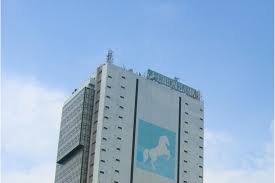Non-performing loans (NPLs) for Union Bank of Nigeria Plc, has reduced by 61 percent in the one year period between 2017 and 2018 from 21 percent to 8.1 percent, Emeka Emuwa, managing director and CEO of the bank has revealed.
Emuwa made this disclosure following the release of the banking group’s audited financial statements for the year ended December 31, 2018.
The NPL ratio indicates the average level of bad loans on the books of banks. It is set at 5 percent by the Central Bank of Nigeria (CBN). The higher the NPL ratio, the more likely it is that a bank will run into solvency challenges, as it is a key indicator of the health of the financial institution.
According to Emuwa, the reduction in Union Bank’s NPLs was as a result of an aggressive focus on recoveries and recognising fully provisioned loans on the bank’s books.
“We successfully reduced the Bank’s NPL ratio, which is now down to 8.1 percent in 2018 from 20.8 percent at the end of 2017, in line with guidance provided at the start of the year.
In 2019, we will continue to maintain focus on recoveries while prudently rebuilding our loan book and maintaining a conservative risk profile,” he assured.
A highlight of the bank’s financial performance showed profit before tax was up 33 percent to N18.5 billion from N13.9 billion as at December 2017. Gross earnings fell 11 percent to N145 billion from N168 billion in 2017 due to 8 percent drop in loan book.
Customer Deposits were up 7 percent to N857.6 billion as against N802.4 billion as at December 2017 while operating expenses increased to N66.7 billion in 2017 to N75 billion as at December 2018.
Underlining strategies that informed Union Bank’s 2018 performance, Emuwa said: “Our priorities in 2018 were three pronged; enhancing our productivity across board; tightening up our loan portfolio (especially resolving key large exposures which drove NPLs up significantly at the end of 2017); and optimizing the Bank’s capital and funding base.
He noted that in 2019, the bank will double-down on productivity efforts to deliver its financial targets.
“We are harnessing synergies across our business segments to ensure we maximize opportunities across entire value chains, while centralising key business and operational functions for better efficiency, and prioritizing customer experience across all our touchpoints
We are also pleased to be introducing our women focused initiative, αlpHer, which will provide a portfolio of financial and non-financial services to women across customer segments in Nigeria.
Lastly, we have commenced the Long-Term Efficiency Acceleration Programme (LEAP), a comprehensive transformation effort to embed cost discipline across the Bank. We believe LEAP will deliver significant cost savings in 2019 and entrench a culture of efficiency across all areas of the Bank.”









